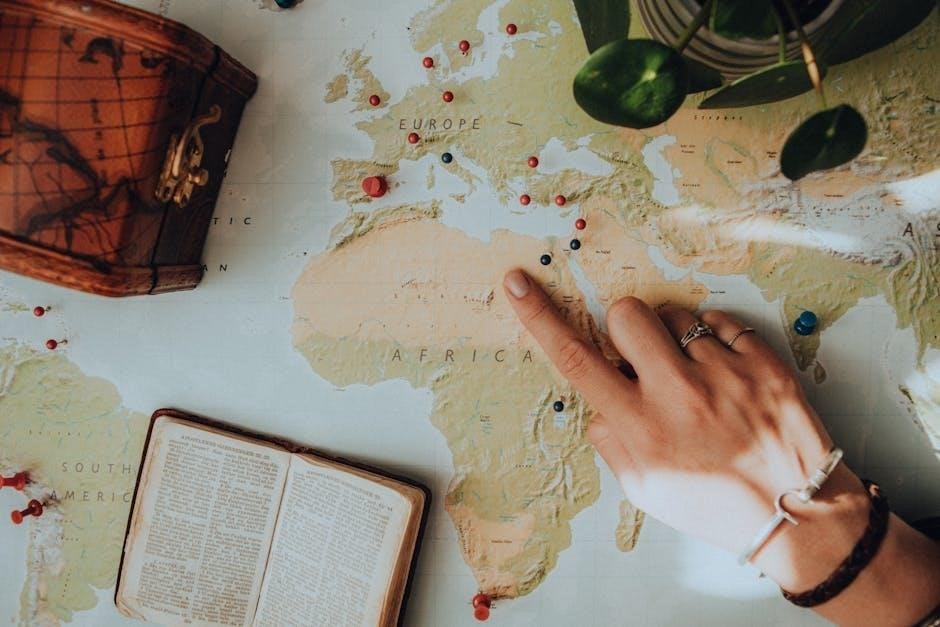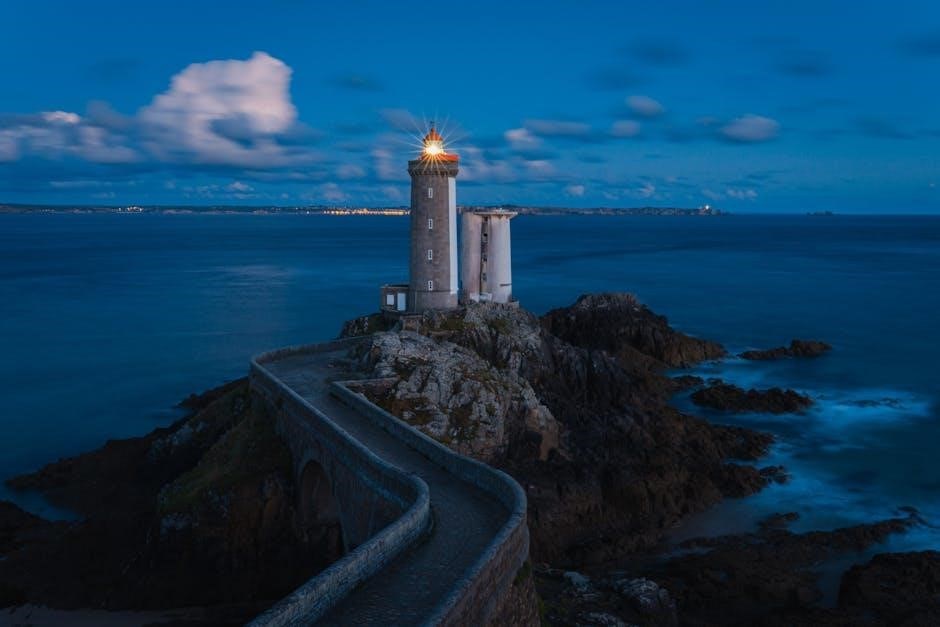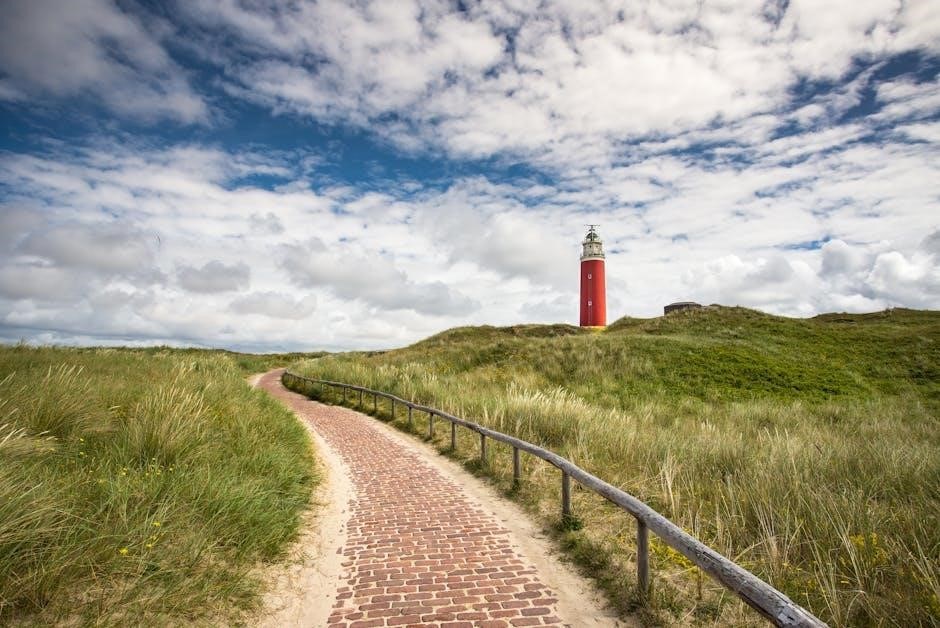el salvador travel guide

Planning a trip to El Salvador? This guide offers essential travel information, highlighting must-see destinations and local insights. Discover the beauty of El Salvador, from its stunning beaches to its rich cultural heritage. Get ready for an unforgettable adventure in this Central American gem.
Safety and Security
When traveling to El Salvador, understanding the current safety and security landscape is crucial for a smooth and enjoyable trip. While recent efforts have led to a significant reduction in gang-related activity and associated crime, vigilance is still advised. U.S. government employees are permitted to travel throughout the country during daylight hours, which can serve as a benchmark for cautious travel planning.

Travelers should exercise a high degree of caution due to the potential for violent crime, especially at night. Avoiding travel alone or after dark is strongly recommended. It’s wise to refrain from displaying signs of affluence, such as expensive jewelry or electronics, which could make you a target.
Staying informed about local conditions is key. Monitor local news and heed the advice of local authorities. Familiarize yourself with resources available in case of emergencies. The Government of El Salvador’s website provides information in Spanish about earthquakes and other natural disasters. Additionally, women travelers should consult specific travel tips tailored to their needs.
Remember to remain vigilant at all times, exercise caution, and stay informed to ensure a safe and memorable experience in El Salvador.
Popular Tourist Destinations
El Salvador boasts a variety of captivating destinations that cater to diverse interests. San Salvador, the capital city, offers a blend of historical sites, museums, and vibrant urban life, providing a glimpse into the country’s culture and heritage.
For those seeking natural beauty, El Salvador’s volcanoes are a must-see. Hike up the slopes of volcanoes like Santa Ana or Izalco for stunning panoramic views of the surrounding landscapes and coffee plantations. The country’s national parks offer opportunities for hiking, birdwatching, and immersing yourself in nature.
The beaches of El Salvador are renowned for their world-class surfing conditions, attracting surfers from around the globe. Coastal towns like El Tunco and El Zonte offer a laid-back atmosphere, with surf shops, restaurants, and accommodations catering to surfers and beach lovers.
Explore charming flower-filled villages with buildings adorned with colorful murals, showcasing the country’s artistic expression. Don’t miss the chance to visit coffee plantations clinging to the sides of volcanoes, where you can learn about the coffee-making process and sample locally grown coffee.
From bustling cities to serene natural landscapes, El Salvador’s popular tourist destinations offer a rich tapestry of experiences for every traveler.
Beaches and Surfing
El Salvador’s coastline is a surfer’s paradise, known for its consistent waves and warm waters. The beaches along the Pacific coast offer a variety of surf breaks, catering to both beginners and experienced surfers. The dark-sand beaches provide a unique backdrop for riding the waves.
El Tunco is a popular surf town, attracting surfers from around the world. The town has a lively atmosphere, with surf shops, restaurants, and accommodations catering to surfers and beach lovers. The waves at El Tunco are known for their power and consistency, making it a favorite spot for experienced surfers.
El Zonte is another popular surf destination, known for its laid-back vibe and consistent waves. The town has a more relaxed atmosphere than El Tunco, making it a great place to unwind and enjoy the beach. The waves at El Zonte are suitable for surfers of all levels, with both mellow breaks for beginners and more challenging waves for experienced surfers.
Beyond surfing, El Salvador’s beaches offer opportunities for swimming, sunbathing, and other water activities. The coastal towns provide a range of accommodations, from budget-friendly hostels to luxury resorts.
Whether you’re a seasoned surfer or a beginner, El Salvador’s beaches offer an unforgettable experience.
Coffee Plantations and Volcanoes
El Salvador’s fertile volcanic soil and high altitudes create the perfect conditions for growing exceptional coffee. The country’s coffee plantations, or fincas, offer visitors a chance to learn about the coffee-making process, from bean to cup. Many plantations offer tours, providing insights into the cultivation, harvesting, and roasting of coffee beans.
The Ruta del Café is a popular route that takes visitors through the heart of El Salvador’s coffee-growing region. Along the route, you’ll find charming towns, scenic landscapes, and of course, numerous coffee plantations. You can sample different varieties of coffee, learn about the history of coffee production in El Salvador, and even stay overnight at a plantation.
El Salvador is also home to several volcanoes, which offer stunning views and opportunities for hiking. The Izalco Volcano, known as the “Lighthouse of the Pacific,” is one of the country’s most iconic volcanoes. You can hike to the summit of Izalco for panoramic views of the surrounding landscape.
The Santa Ana Volcano, also known as Ilamatepec, is another popular hiking destination. The volcano’s crater contains a beautiful turquoise lake, creating a breathtaking sight.
Combining a visit to coffee plantations with a hike up a volcano is a great way to experience the natural beauty and cultural heritage of El Salvador.
National Parks
El Salvador, despite its small size, boasts a diverse range of national parks, each offering unique natural beauty and opportunities for outdoor adventures. These protected areas showcase the country’s commitment to preserving its rich biodiversity and natural landscapes.
El Imposible National Park, one of the most important parks in El Salvador, is a haven for wildlife enthusiasts. Its rugged terrain and dense forests are home to a variety of species, including monkeys, pumas, and a wide array of birds. Hiking trails wind through the park, offering stunning views of the surrounding mountains and valleys.
Montecristo National Park, located in the cloud forest region, is another gem. This park is characterized by its lush vegetation, cool climate, and abundant wildlife. Visitors can explore the park’s trails, marvel at the towering trees, and spot rare birds.
Walter T. Deininger Park, located closer to the coast, offers a different landscape. This park features mangrove forests, lagoons, and sandy beaches. It’s a great place for birdwatching, kayaking, and enjoying the coastal scenery;
Exploring El Salvador’s national parks is a rewarding experience for nature lovers and adventure seekers. They provide a glimpse into the country’s natural wonders.
Dos and Don’ts
To ensure a safe and enjoyable trip to El Salvador, it’s essential to be aware of local customs and potential safety concerns. Here’s a list of dos and don’ts to help you navigate your travels:
Dos:
Do learn some basic Spanish phrases. While English is spoken in some tourist areas, knowing Spanish will enhance your interactions with locals.
Do be respectful of local customs and traditions. El Salvadorans are generally friendly and welcoming, so showing respect will go a long way.
Do dress modestly, especially when visiting religious sites. Covering your shoulders and knees is advisable.
Do try the local cuisine. Pupusas, El Salvador’s national dish, are a must-try, along with other delicious dishes.
Do be aware of your surroundings and take precautions against petty theft. Avoid displaying expensive jewelry or electronics.
Don’ts:
Don’t walk alone at night, especially in less populated areas. Stick to well-lit streets and consider taking a taxi.
Don’t discuss sensitive political topics with strangers. It’s best to avoid controversial subjects to prevent misunderstandings.
Don’t drink tap water. Stick to bottled water to avoid stomach issues.
Don’t flash large amounts of cash in public. Be discreet when handling money.
Don’t venture into unknown areas without a local guide.
Money-Saving Tips

Traveling to El Salvador doesn’t have to break the bank. With a few smart strategies, you can enjoy a fantastic trip while keeping your expenses in check. Here are some money-saving tips:
Accommodation:
Consider staying in hostels or guesthouses instead of luxury hotels. These options offer comfortable accommodations at a fraction of the price. Look for accommodations slightly outside the main tourist areas for better deals.
Transportation:
Utilize local buses for getting around. They are an affordable way to experience the country and connect with locals. Negotiate taxi fares before getting in to avoid overcharging.
Food:
Eat at local comedores (small restaurants) and markets instead of tourist-oriented restaurants. You’ll find delicious and authentic Salvadoran food at much lower prices. Try the pupusas from street vendors; they are a cheap and tasty meal.
Activities:
Take advantage of free activities such as visiting public parks, beaches, and historical sites. Look for free walking tours to explore cities and learn about the local culture;
Other Tips:

Bring a reusable water bottle to avoid buying bottled water. Pack light to avoid checked baggage fees. Travel during the off-season (May to October) for lower prices on flights and accommodations.
Visa and Entry Requirements
Planning a trip to El Salvador requires understanding the country’s visa and entry requirements. Most visitors do not need a visa for stays up to 90 days, including citizens of the United States, Canada, and many European countries. However, it’s crucial to verify the specific requirements based on your nationality before traveling.

A valid passport is essential, and it must have at least six months of validity remaining from your intended date of entry into El Salvador. You may also be asked to provide proof of onward travel, such as a return ticket or a ticket to another destination.
Upon arrival, you’ll need to fill out an immigration form. Be prepared to state the purpose of your visit, your intended length of stay, and your accommodation details. Immigration officials may also ask for evidence of sufficient funds to cover your expenses during your stay.
For stays longer than 90 days, or for purposes other than tourism, such as work or study, you will need to obtain a visa from an El Salvadoran embassy or consulate in advance. Check the latest travel advisories and consult the official website of the El Salvadoran government for the most up-to-date information.
Local Cuisine
El Salvadorian cuisine is a delightful blend of indigenous, Spanish, and African influences, offering a rich tapestry of flavors. Pupusas are arguably the most iconic dish, thick handmade corn tortillas stuffed with savory fillings like cheese, pork, beans, or a combination. Served with curtido, a tangy cabbage slaw, and salsa roja, they’re a must-try street food.
Beyond pupusas, explore other local favorites such as yuca frita, fried cassava served with chicharrón (fried pork rinds) and curtido. Sopa de pata, a hearty cow’s feet soup, is a traditional delicacy, while panes con pollo, chicken sandwiches marinated in spices, provide a satisfying meal.
Seafood lovers will appreciate the fresh catches along the coast, with ceviche and grilled fish being popular choices. Don’t miss the opportunity to sample local fruits like mangoes, papayas, and jocotes, often enjoyed as refreshing juices or desserts.
To complement your meals, try horchata, a sweet rice milk drink flavored with cinnamon and vanilla. Coffee is also a significant part of El Salvadorian culture, grown in the country’s volcanic highlands. Embrace the culinary journey and savor the authentic flavors of El Salvador.